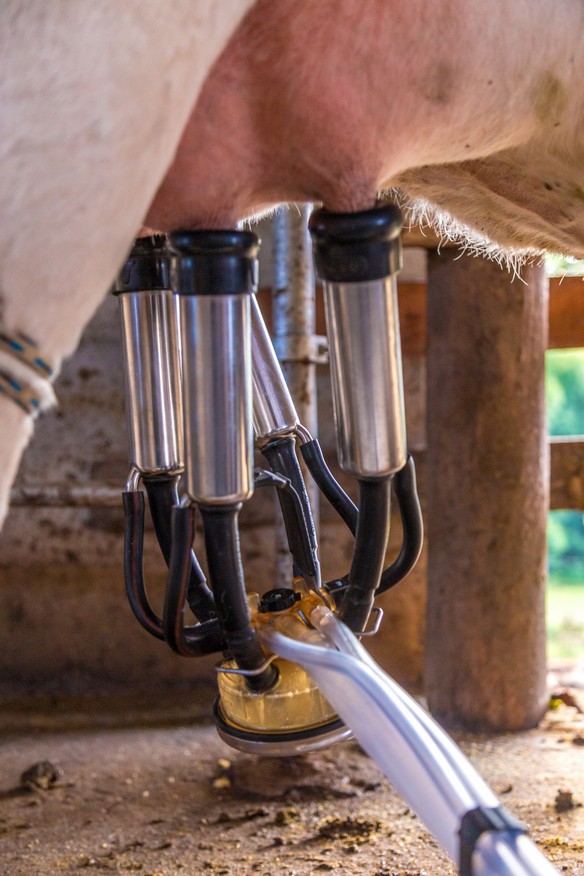Improving milk yield in cattle involves a combination of good management practices, proper nutrition, and attention to the health and well-being of the animals. Here are some strategies to consider:
Nutrition:
Provide a balanced and nutritious diet: Cattle require a balanced diet that includes adequate amounts of protein, energy, vitamins, and minerals. Consult with a veterinarian or a nutritionist to formulate a diet that meets the specific needs of your cattle.
High-quality forage: Good quality forage is essential for milk production. Ensure that the forage is free from contaminants and molds. Supplement with additional feed if necessary.
Genetics:
Selective breeding: Choose bulls and cows with a history of high milk production. Selective breeding can help improve the genetics of the herd over time, resulting in higher milk yields in successive generations.
Healthcare:
Regular veterinary care: Schedule regular check-ups with a veterinarian to monitor the health of your cattle. Address any health issues promptly, as illness can negatively impact milk production.
Vaccination: Implement a vaccination program to prevent common diseases that can affect milk production.
Management Practices:
Proper housing: Provide comfortable and well-ventilated housing for the cattle. Stress-free environments contribute to higher milk production.
Adequate rest: Ensure that cows have sufficient rest and minimize stressors, as stress can negatively impact milk production.
Milking Techniques:
Proper milking procedures: Use proper milking techniques to avoid injury to the udder and ensure complete milk removal. Clean and sanitize milking equipment regularly to prevent contamination.
Regular milking schedule: Stick to a consistent milking schedule to maintain milk production efficiency.
Monitoring and Record Keeping:
Keep detailed records: Monitor milk production, health, and reproductive performance. Record-keeping can help identify trends and potential issues early on.
Hormonal Management:
Consider hormonal interventions: In consultation with a veterinarian, hormonal interventions may be considered to optimize the reproductive cycle and improve milk production.
Supplementation:
Use supplements strategically: Some supplements, such as minerals and vitamins, may be necessary to fill nutritional gaps in the diet.
Remember that the specific needs of cattle can vary based on factors such as breed, age, and environmental conditions. Consulting with a veterinarian or an animal nutritionist for a customized plan based on your specific circumstances is crucial for success.




